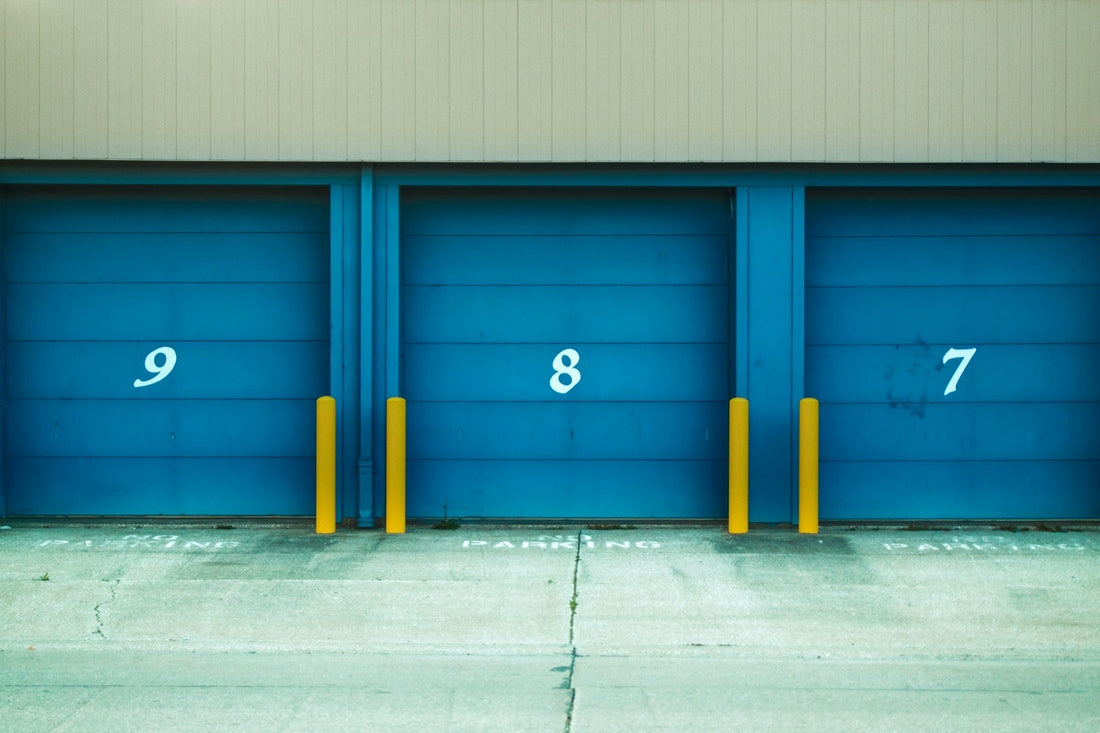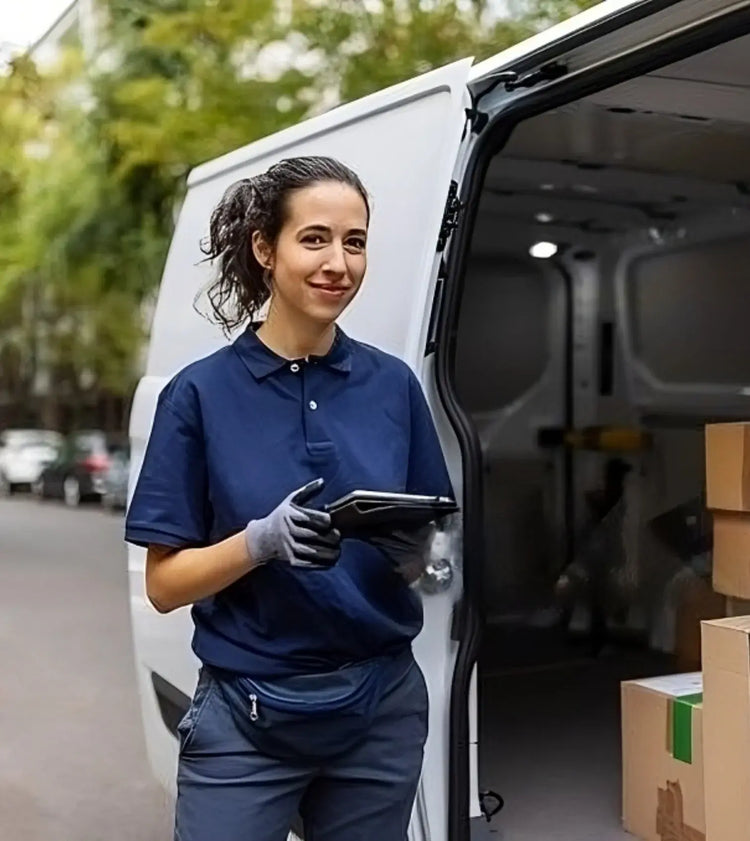
Storage Unit Prices: What Influences How Much You Pay?

Share
Storage unit prices are influenced by factors like the unit size, the location of the unit and how long you plan to store your items.
If you’ve ever looked into renting a storage unit, you’ve probably noticed that prices can be quite variable. From small lockers to big units that can fit the contents of an entire house, the cost of storage depends on more than just size. Location, demand, security features, and even the time of year can all play a role in how much you’ll pay.
Whether you're decluttering, moving house, or storing business inventory, understanding what drives storage costs can help you make a smarter, more budget-friendly decision.
In this guide, we’ll break down the key things that increase and decrease storage unit prices - so you can be sure you're never overpaying.
How Much Does A Storage Unit Cost?
The cost of a storage unit can go up and down based on a number of factors, including size, location, amenities, and rental duration - not to mention the company you choose.
Prices can start at just a few pounds per month for a small unit in a rural area, while larger units in major cities can cost several hundred pounds.
For those looking for the most affordable option, storage by the box services allow you to only pay for the amount of boxes you put away, not an entire unit.
But it's not just the unit itself that impacts the price. .The type of storage facility also plays a big role in pricing.
Traditional self-storage units tend to be more because they have features like 24/7 access, security, and climate control. Managed storage and peer-to-peer storage options may come with lower prices but also have different levels of convenience and service.
It's up to you to decide which option best suits your needs.
What Factors Affect The Cost Of A Storage Unit?
Unit Size
The size of the storage unit is one of the biggest factors that determine the cost.
Popular sizes range from small units (like a 5’x5’ space that is like a walk-in wardrobe) to large units (like a 10’x30’ space, which can hold the contents of a full house).
The larger the unit, the higher the cost, making it important to work out how much space you need to avoid overpaying for unused space.
If you have a lot of stuff to put into storage but don't need a whole unit, there are other options.
Companies like The Box Co. allow you to store based on the number of items you have, not the unit size, meaning you only pay for the space that you use. That way, you can be sure you'll never waste money on space in a storage unit that you're not using.

Location
Inner-city storage units are generally more expensive than those in rural areas. Like with housing, space in cities comes with a higher price tag due to demand and the cost of space.
For example, a small storage unit in London or a major city like Manchester could cost as much as a big unit in a more remote location.
Amenities
Amenities like climate control, high-end security features, and 24/7 access can also drive up the cost of a storage unit.
While these features provide added value, they can make a big difference when it comes to the monthly rental rates.
Rental Period
The length of the rental agreement can also influence the unit's cost. If you plan to store your items long-term, it might be worth asking for a discount. Many companies do offer this, lowering the cost per month.
What this means, however, is that short-term rentals may come at a premium.
What Are the Costs Associated With Storage?
Beyond the monthly rental rate, there are some extra costs that can affect the price of renting a storage unit:
Admin Fees: Depending on the location and the company, you might have to pay some extra admin fees to the company.
Insurance: Many companies will ask you to have insurance for your stored items. This can drive up the monthly cost, especially for a large unit. Companies like The Box Co. include insurance in their pricing, so it's always worth shopping around for the best deals.
Security Deposit: Some storage facilities will want you to put down a refundable security deposit. Whilst you will get your money back, it does still add to the upfront cost.
How Much Should I Pay for Storage?
The cost of storage depends on a few key things - mainly the size of the unit, where it is, and any extra features you need.
In smaller towns, you might find a basic unit for as little as £10 to £20 a month, but in big cities, prices can easily go over £100 for the same space.
If you need things like climate control, 24/7 access, or extra security, you’ll likely pay more.
Short-term rentals also tend to be pricier per month compared to long-term agreements.
To keep costs down, it’s worth shopping around, looking for discounts on longer rentals, and considering alternatives like storage-by-the-box services, which might be more cost-effective depending on what you're storing.
At The Box Co. storage is priced from just 79p per week.

How Can I Pay Less For Storage?
If you want to pay less for a storage unit, here are some of our top tips:
Seasonality and Availability
Be aware that for some companies, prices can fluctuate based on seasonality, with higher rates during peak moving seasons in the spring and summer.
Pay For Space You Need
If you’re looking to cut down on storage costs, there are a few tricks that can help. First, only pay for the space you actually need - people often overestimate how much room they’ll use.
If you’re storing smaller items, a storage-by-the-box service could be a cheaper option than renting an entire unit.
Location
Location also makes a big difference. Storage units in city centres tend to be pricey, so if you don’t need regular access, consider looking a little further out where prices are lower.
It’s also worth checking for promotions, especially from new storage facilities trying to attract customers. Some companies offer discounted rates for the first few months, so shopping around and comparing deals can make a big difference.
How To Keep Storage Costs Under Control
Keeping storage costs down is all about being strategic - paying for only what you need and taking advantage of money-saving options.
Start by thinking about your storage needs. Many people end up paying for more space than they actually use. If you're storing smaller items, consider a service that charges by the box rather than renting an entire unit.
Compare prices across different providers to make sure you're always getting the best deals.
If you’re on a budget, avoid unnecessary extras like climate control or 24/7 access unless they're absolutely essential.
A little research and planning can go a long way in keeping your storage costs low without sacrificing convenience.
Storage Unit Pricing: How To Bring It Down
When it comes to storage, knowing what affects the price and how to keep costs down can make a big difference.
By choosing the right unit size, comparing companies, and taking advantage of discounts, you can find an option that fits your budget without overpaying.
Whether you need storage for a short-term move or the long-term, a little planning goes a long way. With the right approach, you can keep your things safe and tucked away - without breaking the bank.



